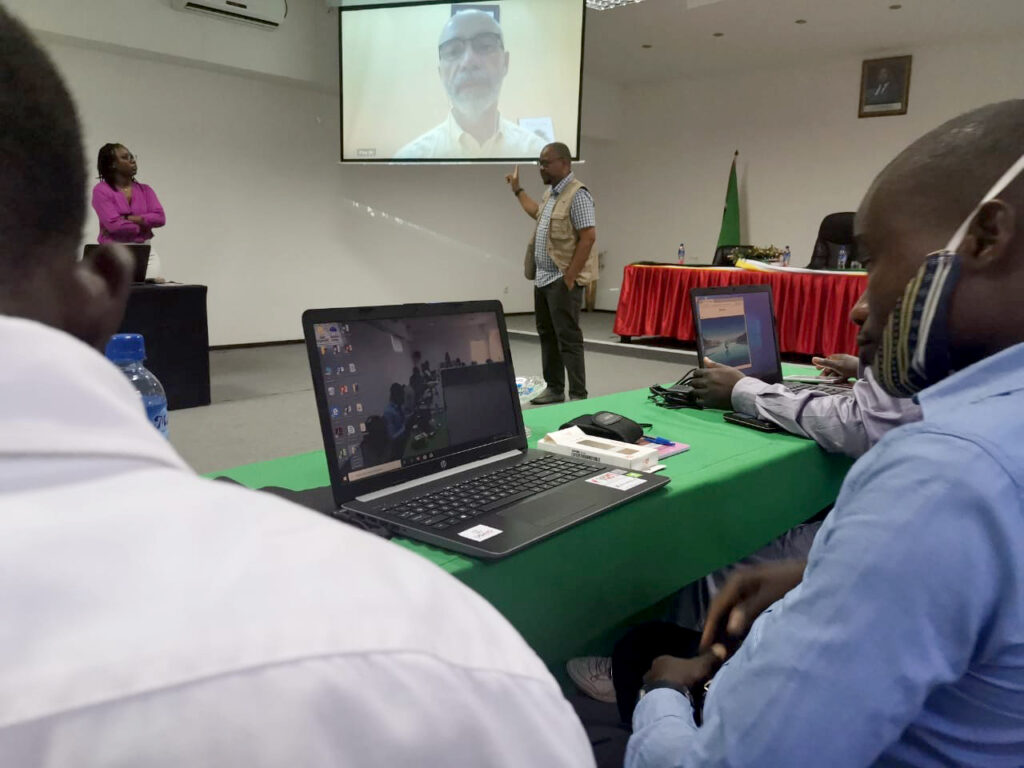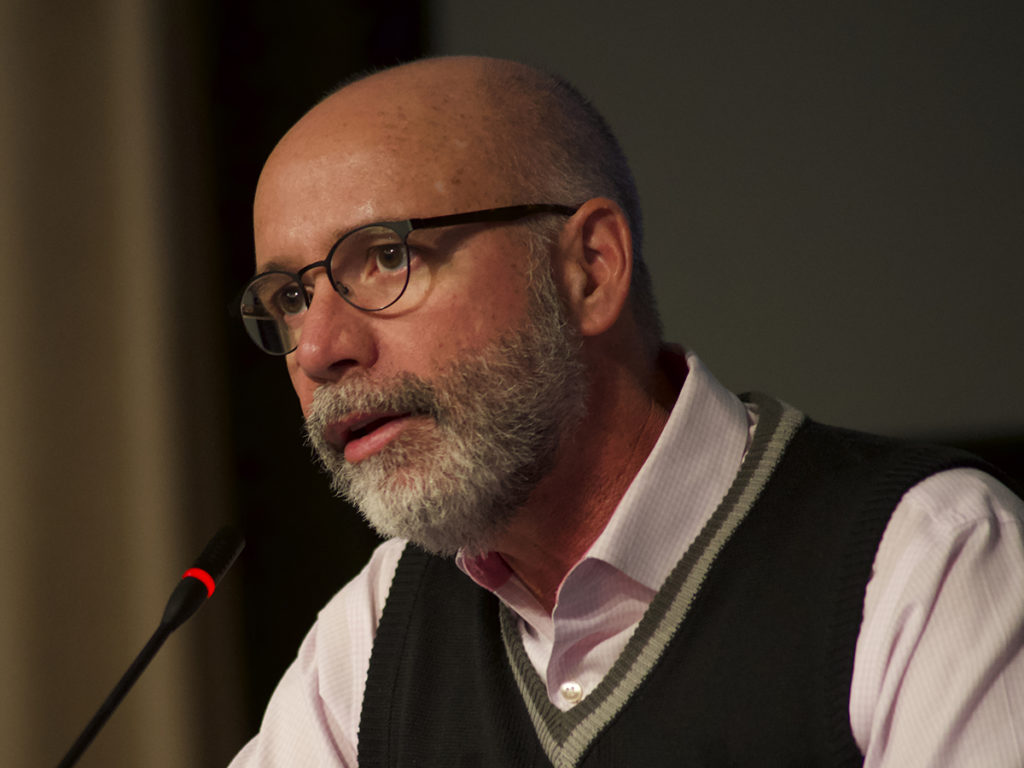Dean Reis Delivers Training for Journalists in Mozambique

Raul Reis, dean of the School of Communication, recently added Mozambique to the list of nations where he has provided training for journalists—except this time his visit was virtual. Nonetheless, his guidance offered helpful insight to journalists who conduct their work in spite of everyday threats to their safety.
As Emerson Today previously reported, Reis has visited the Dominican Republic, Angola, and Panama through the U.S. State Department Speaker Series. Journalists in each location face varying challenges to their work, and Reis customizes his teachings for them, addressing topics such as ethics and accuracy, confronting fake news, and using social media and other digital platforms to connect with sources and audiences.

The most recent training in Mozambique was designed largely for community radio reporters and producers, who navigate the layered challenges of recovery from Cyclone Kenneth, violent extremism by armed groups, and an influx of extractive industries that has led to both mercenary activity and political influence. Amid the crises, growing evidence indicates government security forces’ intimidation and detention of journalists—particularly those covering the civil unrest in the Cabo Delgado province.
Reis, who was born and raised in Brazil, delivered his insights in Portuguese (Mozambique’s official language), through a series of self-recorded videos. To sum them up, we asked him to share his top five pieces of advice for Mozambiquan journalists:
- Make the most out of your mobile phones. Your smartphones can be your own mobile newsrooms — they give you almost unlimited access to digital news production tools and publishing platforms.
- Social networks may be used very effectively by journalists for three main purposes: finding information and sources; publishing digital stories, photos, and videos; and promoting your own work to your audiences.
- Use digital tools and social media to create an online personality — digital media give a voice not only to you, as a journalist and publisher, but also to your audience. They also create a direct communication channel between you and your audience.
- Don’t be afraid of blogs! WordPress is a wonderful free tool, with all the resources you’ll ever need to be a great publisher. As a journalist, you can either have your own independent blog, or you can create a dedicated blog within your media organization’s platform.
- Remember that it’s more important to be right than to be first. Your credibility as a professional depends on being accurate and trustworthy. It’s easy to forget that when we’re using digital tools, and rushing to publish our stories.
The training program — hosted by the U.S. Embassy in Mozambique and the h2n Association, a non-governmental organization dedicated to advancing community-based communication — also featured the stories and teachings of several investigative journalists who have personally experienced threats to their safety.
Categories